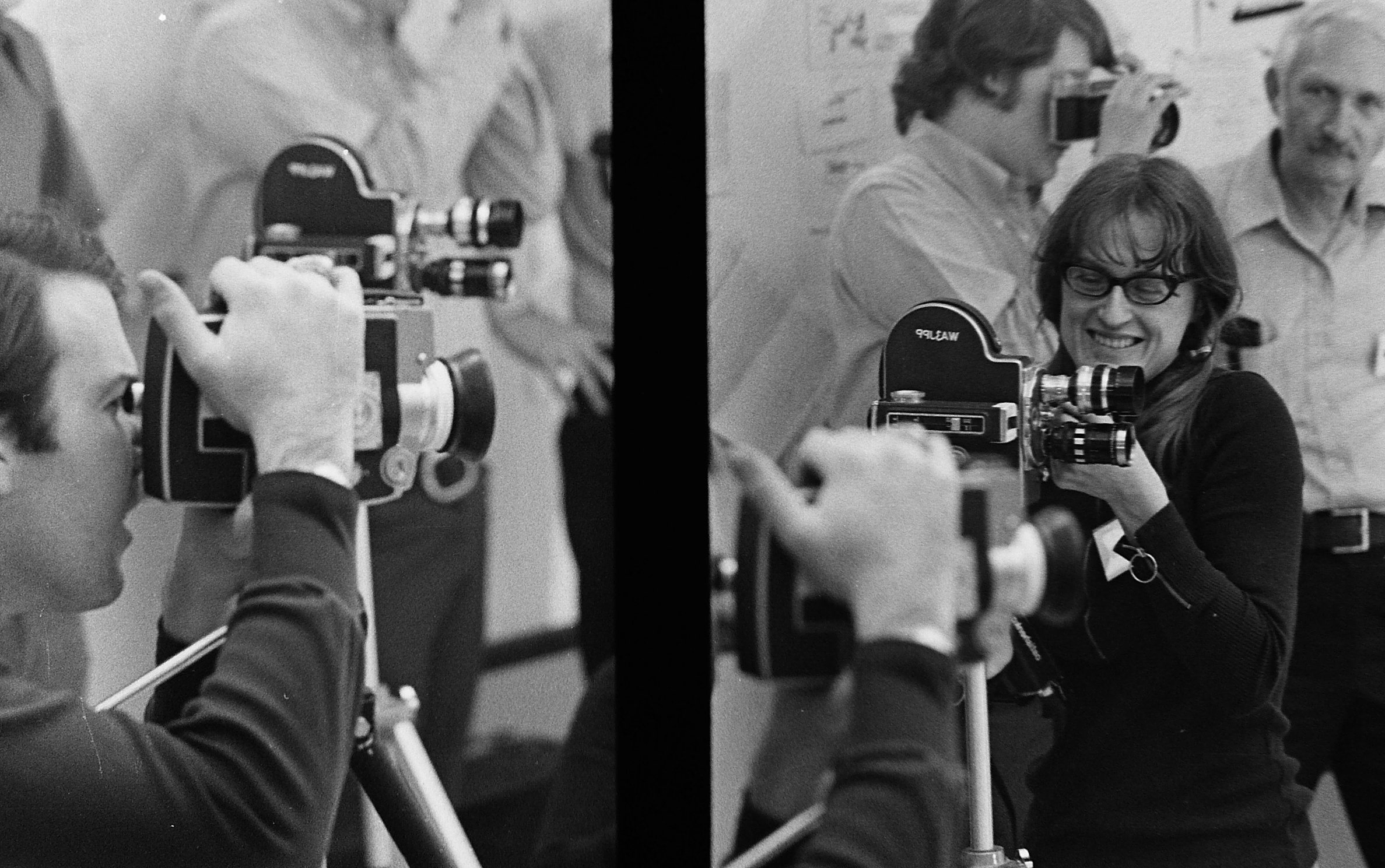Her name was Priscilla Comden, but everyone knew her as Tippi. She lived a cool life. As a filmmaker, she adopted the mononym “Ostishenko.” She and her husband Larry moved to Pittsburgh in 1967. Inspired by the expanded cinema of Expo ’67, the philosophies of Marshall McLuhan, and by the cresting tide of the counterculture and second wave feminism, Tippi and a friend rented a barn in South Park and hosted their own one-night-only multi-projection happening. From then on, she was hooked on making movies. Soon she fell-in with a brand new arts organization that would become Pittsburgh Filmmakers (PFMI.) She served as PFMI’s first receptionist, edited the early newsletters, and immersed herself in the work of filmmakers visiting Pittsburgh regularly as part of PFMI and Carnegie Museum of Art exhibition programs. She also documented workshops by major artists like Robert Breer and Carolee Schneemann (these finished films will be included in this screening.)
After a brief career detour as the manager of the snack bar for New Wave Skatepark (the Pittsburgh region’s legendary first skate park), Tippi became Media Coordinator for Western Pennsylvania School for the Deaf, where she would work for over 25 years. One of her roles included teaching students to make films, most notably the 22-minute Super 8 epic Nosferatu the Vampire at WPSD, also included in our show. Right up until her death in 2010, she remained a prolific documenter, using the mediums of film, video, photography, and the typewritten word to record her personal life, travels, and the city of Pittsburgh. Always ahead of her time, she found success in the early days of YouTube, racking up at least 13 million views with her videos. Yet her name barely registers in most accounts of Pittsburgh film history. That changes now.
ABOUT ESSENTIAL PITTSBURGH
Pittsburgh Sound + Image seeks to redefine our region’s film history with the Essential Pittsburgh series. We acknowledge the depth of creativity which has flourished here by spotlighting vital artists and their films from the 1960s through the 2000s. This landmark series is a continuation of our efforts to celebrate a fuller picture of independent, amateur, industrial, and experimental filmmaking talent, and to better situate Pittsburgh nationally as a place of rich cinematic history.

